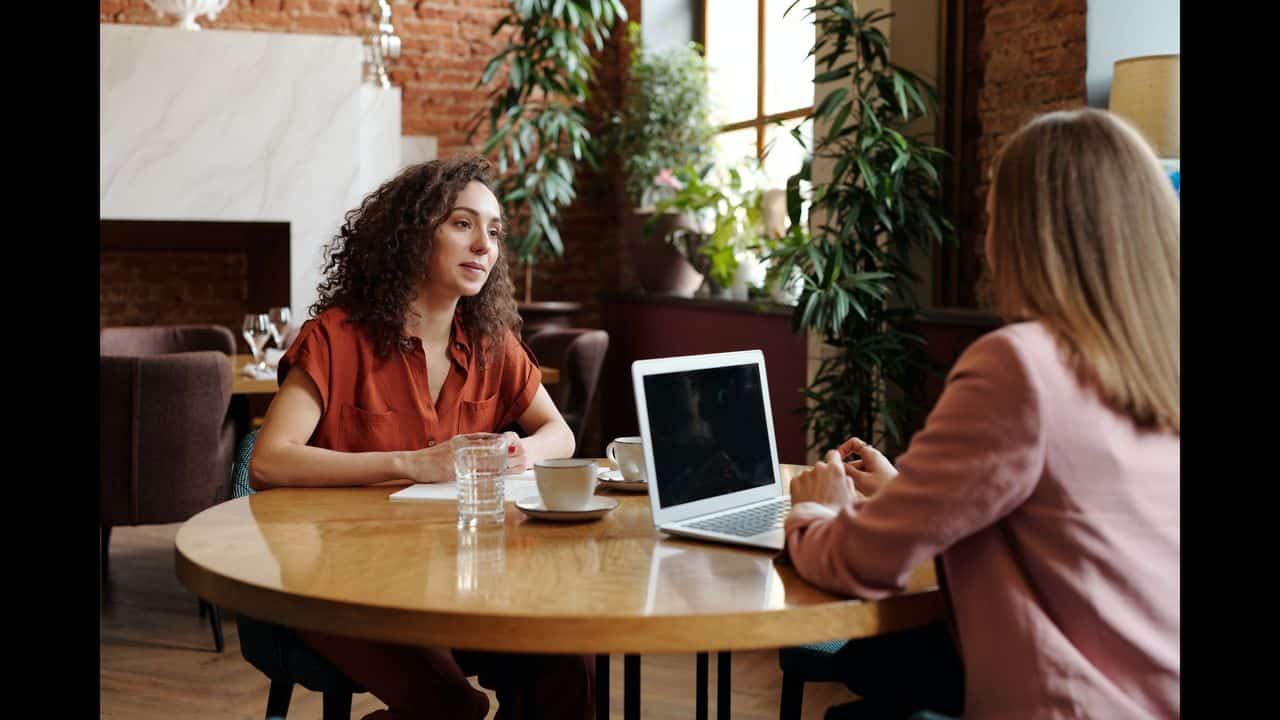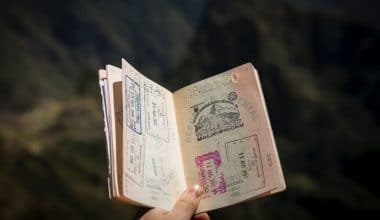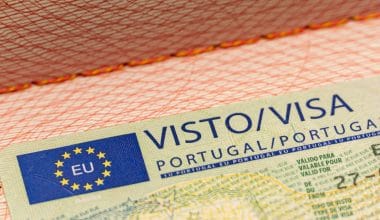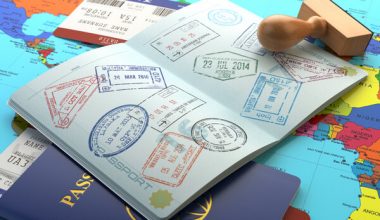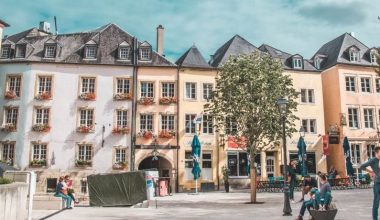The United States has the world’s largest international student population, with over 850,000 students choosing to broaden their education and life experience in the U.S. International students make up nearly 5% of all students enrolled in higher education in the United States, and their numbers are steadily increasing.
Many opportunities will be available to you if you study at a university in the United States that you will not find in other countries. The United States produces students who are well educated across various disciplines as a result of their liberal arts system and strong STEM programs.
If you are interested in acquiring a student visa in USA from Bangladesh, then this article is a must-read for you. Here we’ll be providing you with a bird’s-eye view of what you will need, to get a student visa in USA from Bangladesh.
We’ll be going further to give you tips to stand out in your student’s visa application, read through the article as it would guide you through the entire process.
Types of Students Visas in the USA
1.F1 Student Visa
An F1 visa is mostly used by students applying to programs that require more than 18 hours of study per week. This includes all undergraduate and graduate programs such as MS, MBA, and so on.
If you’re a Bangladeshi student opting to get a student visa in USA from Bangladesh, you’ll need an F-1 Student Visa. Specifically, they usually use this visa for students like you who are about to embark on a study abroad adventure in the United States. It’s the most common visa in the U.S.
The length of your stay as an F-1 student will depend on the program in which you enrolled. The program’s expiration date will be visible on the I-20 form provided by the university you wish to attend.
You must complete your degree before the listed expiration date, which will give you an idea of how long you will be able to stay in the U.S.
After graduation, you may be able to apply for Optional Practical Training (OPT). This will allow you to work in the United States for up to 12 months in a field related to your studies.
STEM graduates may request an additional two years of work in a related field. If you have no extensions or additional training, you must return to your home country within 60 days of graduation.
2. M-1 Vocational/Non-Academic students visa
The M1 visa is a type of student visa that is only available to students attending vocational and technical schools.
While the application process for the F1 visa and the M-1 visa is similar, the M1 visas are time-stamped upon entry and students cannot overstay their visit.
The M1 visa does not have a cap, so any student who meets the requirements would receive a visa with no restrictions on the number of people.
That also includes if you are applying for an M1 student visa in the U.S from Bangladesh.
You can read this: How to Get New Zealand Student Visa | Step-by-Step Procedures
3. J1 Exchange Visitor Visa
Students mainly use the J-1 Exchange Visitor Visa, visiting scholars, or lecturers who are participating in an exchange program. Fulbright scholars and many students on short-term study abroad programs from Indian universities, for example, will enter the United States on a J-1 visa.
J1 visas are typically obtained by working professionals who are visiting America on an exchange program, hence the name Exchange Visitor Visa.
These could include a 10-month vocational training program or a research fellowship, for example. In any case, the respective institutions will notify of the same the applicants.
The length of your stay in the United States on a J-1 student visa will depend on the program you choose.
For example, if your J-1 visa is for a Camp Counselor program, you will most likely be in the US for a short period (e.g., four months during the summer), whereas Au Pair and Research Scholar programs may require J-1 visas that are valid for several years in the US.
J-1 visa holders will have to return to their home country and live there for at least two years after graduation.
You can now return to the United States only after you have completed this requirement. This requirement may not be applicable in the event of an emergency or special circumstances relating to your return to your home country.
How Student Visas Work in the US
A student visa does not guarantee entry into the United States. The visa only allows a foreign citizen to travel to a United States port of entry (usually an airport) and request permission to enter the country.
Officials from the Department of Homeland Security (DHS) and U.S. Customs and Border Protection (CBP) at the port of entry have the authority to grant or deny admission to the United States.
Once you have been granted entry into the United States, a CBP official will issue you an admission stamp or paper Form I-94, Arrival/Departure Record.
Foreign students in the United States on F visas must leave the country within 60 days of the program end date listed on Form I-20, including any authorized practical training.
If you do not leave the United States on time, you will be out of status. Individuals who are out of status have their visas automatically revoked under US law (Section 222(g) of the Immigration and Nationality Act).
Any multiple entry visa that is revoked due to ineligibility will no longer be valid for future visits to the United States. Failure to depart the United States on time may also render you ineligible for future visas.
Requirements or Eligibility Criteria
To obtain a student visa in USA from Bangladesh, you must meet the following requirements.
- Obtain admission to a SEVP-approved institution: The Student Exchange Visitor Program (SEVP) maintains a list of schools, universities, and other educational institutions that meet the requirements and accept international students. Before applying to your preferred schools or universities, it is important that you first check the SEVP to see if your institutions are among them. If yes, you can send them any documents they need to make an admission decision. If you do not meet these requirements, you should not apply because you will not get a student visa even if you get admitted into the school.
- You must be a full-time student.
- You should have strong ties to your home country: It will be more difficult to obtain an F1 visa if you do not demonstrate and submit documentation that you have strong ties to your home country and intend to return home after your educational program ends.
- Demonstrate financial sufficiency: When applying for a student visa in the U.S from Bangladesh, you must demonstrate that you have enough money in your bank accounts to cover the costs of studying and living in the United States. This does not rule out the possibility of F1 students receiving scholarships. Indeed, it’s a good decision to apply for scholarship funds as this will help to reduce your financial burden.
- You must be fluent in English: You must demonstrate that you can speak and understand English at a level sufficient to enroll in an academic program. Students can demonstrate their language skills by taking standardized English proficiency tests like the TOEFL or IELTS.
Documents to Submit
In addition to those points, you will have to submit these documents when applying for a student visa in the U.S from Bangladesh.
- Your passport must be valid.
- Form DS-160 is used to apply for non-immigrant visas.
- Two passport-sized photographs that meet the US Visa Photo Requirements.
- Proof of payment of the F1 visa fee.
- Form I-20: Your Form I-20 specifies the amount of money you’ll need to pay for your education and living expenses in the United States. You must submit documents proving that you have that amount on hand. You can do this by submitting a variety of documents, such as
- . Bank statements for the previous three years
- . Tax returns for the previous three years
- . Pay stubs from previous jobs
- . If you have received a scholarship, you must also provide proof of receipt.
- . Paying a semester’s or a year’s tuition is also a good idea, but it is not required.
- . If your sponsor is someone in the United States, you must submit Form 134, Affidavit of Support, and bank statements for the last three years for that person.
- . If you are paying for your education in the United States with a loan, you must also provide proof of the loan approval.
- Documents demonstrating your prior education and current qualifications:
- Transcripts of the originals
- Standardized Test results (TOEFL, IELTS, GRE, GMAT, etc.)
- Letters of acceptance from the educational institution that accepted you
- Diplomas from previous degrees
- International students must provide proof of purchased health insurance.
All those requirements apply to everyone applying for a United States student visa and that includes those who are applying for a student visa in USA from Bangladesh.
How Long is the Student Visa Valid?
The student visa validity mostly depends on the type of visas
F1 students must maintain a minimum course load to be considered full-time students. Unless they have applied for and been approved to stay and work in the U.S for some time under the OPT Program, they can stay in the country for up to 60 days beyond the length of time it takes to complete their academic program.
F1 students should complete their studies by the expiration date on their I-20 form (Certificate of Eligibility for Non-immigrant Student Status), provided for by the U.S college or university to which they have been accepted.
For a J1 student visa, it’s 18 months for trainees. It is 12 months for interns and Exchange Visitors in the hospitality industry. J-1 visas are only valid for 5 years for professors and research scholars. Understanding the duration of your program is an important first step in the extension process.
The duration of an M1 visa depends on the length of your vocational education. You would get a visa for the duration of your studies or a shorter period. Your Form I-20, on the other hand, is only valid for one year.
This means you’ll have to buy a new one every year. The M1 visa and Form I-20 can extend for a total of three years. If your visa is not valid for the entire duration of your studies, you must apply for an extension.
Fees and Cost of Student Visa in the United States
When applying for a student visa in USA from Bangladesh you will have to pay a fee of 360 USD for the application. Depending on your circumstances, American authorities may allow you to pay this fee online, in person at a visa application center in Bangladesh, or via bank transfer.
It’s important to keep in mind that the visa fee is valid for one year from the date of payment. During this time, you should schedule an interview with a U.S consulate or embassy, as the visa fee will be due again after twelve months.
How to Apply for a Student visa in the United States
To apply for a student visa in USA from Bangladesh you’ll need to follow the following steps.
- Fill out the Nonimmigrant Visa Electronic Application Form (DS-160).
- You must pay the visa application fee.
- On this website, you can make an appointment. To schedule your appointment, you will need the following information: …
- On the date and time of your visa interview, go to the US Embassy or Consulate.
Students’ Visa Processing Time in the United States
Applying for a student visa in USA from Bangladesh doesn’t have a long processing time. Your study permit would go through the process immediately following your immigration interview, which is the final step in the application process.
The consular officer should be able to tell you whether or not your application is approved by the end of the interview.
Your student visa in USA from Bangladesh will typically take 3 days to a few weeks to process. The visa may take up to two additional workdays to get ready.
Applications refused under Section 221(g) of the Immigration and Nationality Act (INA) pending additional processing can take up to 60 days for processing from the date of the visa interview. Sometimes, the processing time may exceed 6 months.
Applicants who need to apply for a waiver of ineligibility to get their visa should know they will have to wait for 6 to 8 months from the date of their interview to receive a response.
Countries participating in the visa waiver program, on the other hand, can receive a response to their ESTA application within 72 hours if they apply through the Electronic Travel Authorization System for short-term visits.
Can I get Student Visa in the United States Without IELTS?
If you are applying for a student visa in USA from Bangladesh there will be no need to demonstrate proficiency in English to study at an international university in the United States.
Although, the language skills help ensures that you will be able to succeed in your classes and navigate your way around the United States.
IELTS is a requirement for international students because almost all universities and colleges accept it. It’s also extremely useful for your postgraduate career, as IELTS is one of the accepted proof of English proficiency by over 10,000 organizations in over 140 countries.
Also, check this: Simple Step by Step Procedures to get South Africa Student VISA [Details]
Working While Studying in the United States
For the F1 student’s visa, when school is in session, your visa allows you to work up to 20 hours per week on campus and full-time during school breaks (up to 40 hours per week).
On-campus employment is work performed on campus or at a school-affiliated off-campus location. Working in a university bookstore, cafeteria, or another facility where students can assist is one option.
If you want to work off-campus, things can get a little more complicated. Off-campus employment, as the name implies, is work done away from the school campus.
It is not impossible to obtain, but it is only available to F1 students who have completed at least one full academic year of their program of study and who are experiencing an economic hardship that meets the Department of Homeland Security’s emergent circumstances.
The M1 visa allows for some limited employment. You may only work on campus, part-time when school is in session, and full-time during breaks.
The maximum amount of time you can work is six months. To be able to work, you must obtain an Employment Authorization Document (EAD) or an M1 Visa Work Permit.
You can do so by submitting USCIS Form I-538, Certification by Designated School. Your Designed School Official must sign the form (DSO).
You should also submit Form I-765, Application for Employment Authorization. If they approve your EAD, they should relate all of your work to your field of study.
J-1 students may work while studying as long as they obtain work authorization. There are some limitations though, such as working only part-time on campus for a maximum of 20 hours per week. During academic breaks, students are free to work full-time.
Frequently Asked Questions
If you are opting to get a student visa in USA from Bangladesh, you should go about it with confidence.
This is because, In the 2020/2024 academic year, over 8,000 Bangladeshi students were studying in the United States, propelling Bangladesh up three places from the previous year.
Out of the 8000 Bangladeshi students who have a student visa in the United States.
More than 75% of Bangladeshi students studying in the United States are studying in STEM fields (Science, Technology, Engineering, and Math).
Of these, more than 41% are studying Engineering, 19% are studying Math/Computer Science, and 15% are studying Physical or Life Sciences.
Nearly 7% major in Business/Management, and nearly 6% major in Social Sciences. During the 2019/2020 academic year, nearly 1300 Bangladeshi students (14 percent of all Bangladesh students) participated in Optional Practical Training (OPT) – on-the-job training for one’s fields of study – as part of their studies in the United States.
If you want to get your student visa in USA from Bangladesh, and you are in search of a good school to apply to, then you should consider Northeastern University.
Northeastern University is the best school for Bangladeshi students, according to the year’s ranking.
In 2018-2019, the large private non-profit school in Boston, Massachusetts, awarded 4,127 diplomas to qualified bachelor’s degree students.
It will take 9 days and cost 200 dollars if you choose Standard Processing. Rush Processing will take 7 days and cost 229 dollars. Super Rush Processing will take 5 days and cost 250 dollars.
You are free to apply as many times as you want. However, before reapplying, consider the reasons for your rejection and work on improving them.
Some people mistakenly believe that there is a monthly or daily quota for visas, and then they simply reject everyone. That is simply not the case, and no quota exists.
Conclusion
As you can see, applying for a student visa in USA from Bangladesh is not a difficult process. You simply need to prepare all the required documents and follow the steps shown above.
Please keep in mind that this is only a general guide for applying for a student visa in the United States. As a result, don’t rely solely on this article for all of your decisions and applications.
Check the specific requirements that apply to your study program or students from your country at all times. Best wishes for your application, and have a wonderful time as an international student!
Having seen how to get a student visa in USA from Bangladesh article, we’ll also advise you to look at how to get a student visa in Canada to explore your options.
References
- travel.state.gov– U.S visas
- educationusa.state.gov– Your 5 step us study
- www.visaplace.com- USA immigration study visas
- studee.com– How to apply for a student visa
- topuniversities.com– How to get a U.S student visa
Recommendations
- How to Get New Zealand Student Visa | Step-by-Step Procedures
- How To Get an Isreal Student Visa | Step To Step Procedures
- Sure Tips to get China Student VISA Fast
- How To Apply For a Student Visa In France | Interview, Requirements, Permit
- How To Get a Student Visa In Italy | Step-by-Step Procedures
- Simple Step by Step Procedures to get South Africa Student VISA [Details]
- How to Get Korean Student Visa | Step-by-Step Procedures
- How To Apply For a Student Visa In Spain | Interview, Requirements, Permit
